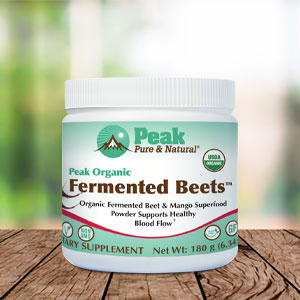Get Easy Health Digest™ in your inbox and don’t miss a thing when you subscribe today. Plus, get the free bonus report, Mother Nature’s Tips, Tricks and Remedies for Cholesterol, Blood Pressure & Blood Sugar as my way of saying welcome to the community!
Why golfers who tee off regularly could live up to 5 years longer

I’ve always turned my nose up at golf. Not that I’m a real sports nut otherwise, but it just never seemed like “real exercise” to me, or like a real sport. Ever watch a game of golf on TV? Not very exciting.
The truth is, it always seemed like an “old person’s game.”
But now that I am an “older person,” I’m seeing things differently. And I’m re-thinking the possibility of learning to play golf.
It turns out that playing golf just once a month can have a positive impact on heart attack and stroke risk.
And, let’s face it, I’m more likely to golf into my 70s and 80s than I am to jog or play other sports that could lower that risk.
Here’s the latest research on why golf is good for your heart, and how it benefits your health in other ways, too.
Golf prolongs life, helps prevent heart attacks and stroke
About a decade ago, a group of Swedish researchers at the Karolinska Institutet published a study in the Scandinavian Journal of Medicine & Science in Sports, based on data from 300,000 Swedish golfers.
They found that the death rate among golfers was 40 percent lower than it was among the rest of the population. This translates into living five years longer.
Although a healthy lifestyle (that includes walking on the golf course) and diet may be part of this longer lifespan, the researchers feel confident that playing golf is the significant factor, since the lowest death rates were found in the group of players with the lowest handicap (i.e., the best golfers).
“Maintaining a low handicap involves playing a lot, so this supports the idea that it is largely the game itself that is good for the health,” said Professor Anders Ahlbom, who led the study.
And now, a group led by Dr. Adnan Qureshi, professor of neurology at the University of Missouri in Columbia, Missouri, is preparing to present research demonstrating that regular golfers (defined as those who play at least once a month) are significantly lowering their risk of death from heart attack or stroke.
Dr. Qureshi and colleagues analyzed data from the Cardiovascular Health Study, an observational study of risk factors for heart disease and stroke among adults 65 and older. This decade-long study ran from 1989 through 1999. Subjects had medical exams every six months for the ten-year period, and later follow-ups monitored any occurrences of heart attack or stroke.
During that follow-up period, 8.1 percent of the golfers had suffered strokes and 9.8 percent had had heart attacks.
But only 15.1 percent of golfers had died of these events, compared to 24.6 percent of non-golfers who had also suffered heart attacks or strokes.
Stress relief is the key
“Regular exercise, exposure to a less polluted environment, and social interactions provided by golfing are all positive for health,” notes Dr. Qureshi.
The common denominator: stress reduction.
The research is clear: unrelenting life stress makes death from sudden cardiac arrest far more likely.
And prolonged stress increases your stroke risk by 59 percent.
How to use golf as a stress reliever
When you watch golf tournaments on TV, it all looks so serious and competitive.
But for stress relief, it’s better to play a social game of golf with a little friendly competition in the mix.
Mostly, you’re competing against yourself, lowering your handicap and getting better each time at those difficult shots.
Here’s what makes golf a great stress reliever:
Endorphins. The act of putting (hitting the ball a short distance) activates your pre-motor cortex to calculate force and direction. If you make the putt (the ball goes in the hole), you’re rewarded with mood-boosting endorphins.
Vitamin D. Being out in the sunshine lets you absorb vitamin D. Vitamin D deficiency is common in older adults and is associated with high blood pressure — and you know what stress does there.
Cardiovascular exercise. The average golfer walks 4 miles during 18 holes of golf. This is a great exercise, especially since you’re making your way over hills and the other various terrains of the course.
Social connections. Social ties and friendships make you less vulnerable to heart attack and stroke. Studies have associated having more friends with less risk of stroke or heart attack, and it stands to reason, doesn’t it? Friendships make your heart healthier and lower blood pressure. This makes it far less likely you’ll fall victim to a fatal stroke or heart attack.
If you’re not inclined to participate in more vigorous exercise or aren’t able to, teeing off regularly could be a great alternative!
Editor’s note: Did you know that when you take your body from acid to alkaline you can boost your energy, lose weight, soothe digestion, avoid illness and achieve wellness? Click here to discover The Alkaline Secret to Ultimate Vitality and revive your life today!
Sources:
- Golfing regularly could be a hole-in-one for older adults’ health — American Heart Association
- Play a Round: Golf Has Many Health Benefits for Seniors — BAYADA
- Golfing Drives Good Health for Older Adults — Tucson Local Media
- Golf Prolongs Life, Swedish Study Finds — Karolinska Institutet














